Grants

Noyce Fellowship
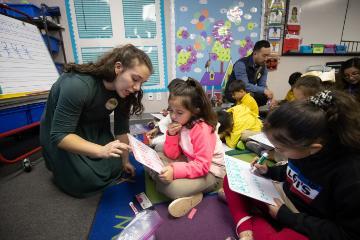
U.S Department of Education Bilingual Education Grant
Faculty Research
Exploring Digital Interventions for Child Anxiety
A Research Study by SCU ECP Counseling Psychology
The Counseling Psychology Department at Santa Clara University is leading an in-person research study exploring how digital tools—like games and videos—can help children ages 5–7 manage worry, shyness, and perfectionism. Families receive $60 per lab visit plus fun prizes for kids.
👉 Learn more about the study and how to participate
Publications:
Bravo, M. A., Mosqueda, E., Tellez, K. (In Press). Improving and Sustaining Bilingual Mathematic Instruction Through Targeted Professional Development. TESOL Journal.
Bravo, M.A., & Tellez, K. (2024). Mathematics Instruction in Dual Language Classrooms: Theory and Research Informing Practice. Charlotte, NC: Information Age Publish.
Xia, Y., Patthoff, A., Bravo, M. A., Tellez, K. (2022). “We don’t observe other teachers”: Addressing professional development barriers through lesson study and video clubs. Teacher Learning and Professional Development 7(1) 1-20.
Bravo, M. A. & Rodriguez-Mojica (2021). Bilingual Teaching Practices: Meeting the Needs of Latina/o Youth in Secondary Schools. Journal of Leadership, Equity, and Research 7(2). 1-20.
Maldonado, S. I., Mosqueda, E., Bravo, M. A., & Solís, J. L. (2021). Assessing and teaching students’ biliteracy in mathematics: A professional development model. The Multilingual Educator.
Grants:
National Science Foundation [$1 million] grant for Investigating the Impact of Preparation in Racial Equity and Language Equity Practices on STEM Secondary Teacher Effectiveness and Retention. PI Marco Bravo, CoPI Eduardo Mosqueda, CoPI Sun Young Yoon, CoPI Elizabeth Gandhi. 06/24-05/28.
William T. Grant Foundation, [$650,000] Strengthening a Holistic, Community-Based Pre-Collegiate Support System to Enhance College Matriculation, Persistence, and Success among Latinx Students in East San José, CA: Preparing Racially Minoritized Students for College During Uncertain Times. 06/24-05/26. PI Pedro Nave, CoPI Marco Murillo, CoPI Argelia Lara, CoPI Jasmin Llamas, CoPI Sabrina Zirkel, CoPI Marco Bravo
United States Department of Education, National Professional Development [$2.7 million] Leveraging Bilingualism and Literacy for Secondary English Learner STEM Content Access. 09/21-08/26. PI Eduardo Mosqueda, CoPI Marco Bravo, CoPI Jorge Solis.
Feldman, D. B., & Kubota, M. (2012). Hope: Psychological perspectives on a spiritual virtue. In T. G. Plante (Ed.), Religion, Spirituality, and Positive Psychology: Understanding the Psychological Fruits of Faith (pp. 49-62). Westport, CT: Praeger/Greenwood.
Feldman, D. B. (2011). Posttraumatic stress disorder at the end of life: Extant research and proposed psychosocial treatment approach. Palliative and Supportive Care, 9, 407-418.
Feldman, D. B., & Lasher, S. A., Jr. (2008). The end-of-life handbook: A compassionate guide to connecting with and caring for a dying loved one. Oakland, CA: New Harbinger Publications.

Feldman, D. B., & Crandall, C. S. (2007). The dimensions of mental illness stigma: What about mental illness causes social rejection? Journal of Social and Clinical Psychology, 26, 137-154.
McNichols, K. Z., & Feldman, D. B. (2007). Spirituality at the end of life: Issues and guidelines for care. In T. G. Plante & C. E. Thoresen (Eds.), Spirit, science and health: How the spiritual mind fuels the body. Westport, CT: Praeger/Greenwood.
Feldman, D. B., & Snyder, C. R. (2005). Hope and the meaningful life: Theoretical and empirical associations between goal-directed thinking and life meaning. Journal of Social and Clinical Psychology, 24, 401-421.
Feldman, D. B. (in press). The meaning of hope and vice versa: Goal-directed thinking and the construction of a meaningful life. In J. Hicks & C. Routledge (Ed.), The experience of meaning in life: Perspectives from the psychological sciences. New York: Springer.
Bachen, C. M., Hernández-Ramos, P. F., Raphael, C. (2016). How Do Presence, Flow, and Character Identification Affect Players’ Empathy and Interest in Learning from a Serious Computer Game? Computers in Human Behavior 64, 77-87
Bachen, C., Hernandez-Ramos, P., Raphael, C., & Waldron, A. (2016). Modeling the effects of presence, flow, and character identification on players’ empathy and interest in learning from a serious computer game. Games+Learning+Society Conference. Madison, WI.
Raphael, C., Bachen, C. M., & Hernández-Ramos, P. F. (2012). Flow and cooperative learning in civic game play. New Media & Society, 14(8), 1321-1338.
Bachen, C. M., Hernández-Ramos, P. F., & Raphael, C. (2012). Simulating REAL LIVES: Promoting global empathy and interest in learning through simulation games. Simulation & Gaming, 43(4), 437-460.
Hernandez-Ramos, P., & De La Paz, S. (2009). Learning History in Middle School by Designing Multimedia in a Project-Based Learning Experience. Journal of Research on Technology in Education, 42(2), 151-173.
Hernández-Ramos, P. F. (2007). Aim, shoot, ready! Future teachers learn to ‘do’ video. British Journal of Educational Technology, 38, 33–41.
Hoyle, Harold J., & Johnson, Steve. Alternatives to the Paper Chase: Teaching Special Education Students in Court and Community School Programs. Journal of Juvenile Court, Community, and Alternative School Administrators of California (n.d.)
Larson, D. G. (2020). The Helper's Journey: Empathy, Compassion, and the Challenge of Caring, Second Edition. Research Press Co.

Masuda, A., Tully, E. C., Drake, C. E., Tarantino, N., Ames, A. M., & Larson, D. G. (2017). Examining self-concealment within the framework of psychological inflexibility and mindfulness: A preliminary cross-sectional investigation. Current Psychology: A Journal for Diverse Perspectives on Diverse Psychological Issues, 36 (1), 184-191.
Larson, D. G., & Chastain, R. L. (2016). Self-Concealment Scale (SCS). In V. Zeigler-Hill & T. K. Shackelford (Eds.), Encyclopedia of personality and individual differences. New York, NY: Springer.
Larson, D. G., Chastain, R. L., Hoyt, W. T., & Ayzenberg, R. (2015). Self-concealment: Integrative review and working model. Journal of Social and Clinical Psychology, 34(8), 705-729.
Larson, D. G. (2015). Person-Centered Grief Counseling, Part 2. Sage Video Counseling and Therapy Collection. Richmond, VA: Urquhart Publishing.
Larson, D. G. (2015). Person-Centered Grief Counseling, Part 1. Sage Video Counseling and Therapy Collection. Richmond, VA: Urquhart Publishing.
Larson, D. G. (March/April, 2014). Getting grief working: A guide for the new grief therapist. New Therapist, 25-29.
Larson, D. G. (2013). A person-centred approach to grief counseling. In M. Cooper, M. OHara, P. F. Schmid, & A. Bohart (Eds.), The handbook of person-centred psychotherapy and counseling (2nd ed., pp. 313-326). New York: Palgrave Macmillan.
Larson, D. G. (2013). Taking stock: Past contributions and current thinking on death, dying, and grief. Death Studies. 38, (5), 349-352.
Hoyt, W. T., & Larson, D. G. (2010). What have we learned from research on grief counseling? Response to Schut and Neimeyer. Bereavement Care, 29, 10-13.
Larson, D. G., & Hoyt, W. T. (2009). Grief counseling efficacy: What have we learned? Bereavement Care, 28 (3), 14-19.
Hoyt, W. T., & Larson, D. G. (2008). A realistic approach to drawing conclusions from the scientific literature: Response to Bonanno and Lilienfeld (2007). Professional Psychology: Research and Practice, 39, 378-379.
Larson, D. G., & Hoyt, W. T. (2007). What has become of grief counseling: An evaluation of the empirical foundations of the new pessimism. Professional Psychology: Research and Practice, 38, 347-355.
Larson, D. G., & Hoyt, W. T. (2007). The bright side of grief counseling: Deconstructing the new pessimism. In K. J. Doka (Ed.), Living with grief: Before and after the death (pp. 157-174). Washington, DC: Hospice Foundation of America.
Haley, W. E., Larson, D. G., Kasl-Godley, J., Neimeyer, R., & Kwilosz, D. (2003). Clinical roles for psychologists in end-of-life care: Emerging models of practice. Professional Psychology: Research and Practice, 34 (6), 626-633.
Connor, S. R., Egan, K., Kwilosz, D., Larson, D. G., & Reese, D. (2002). Interdisciplinary approaches to assisting with end-of-life care and decision making. American Behavioral Scientist, 46, 340-356.
Larson, D. G. (1993). The helper's journey: Working with people facing grief, loss, and life-threatening Illness. Champaign, IL: Research Press.
Larson, D. G. (1993). Self-concealment: Implications for stress and empathy in oncology care. Journal of Psychosocial Oncology, 11, 1-16.
Larson, D. G. (Ed.). (1984). Teaching psychological skills: Models for giving psychology away. Monterey, CA: Brooks/Cole.
Llamas, J. (2016). Mentoring Needs of Early Career Latina/o Faculty. Presented at a symposium on Ecological Cultural Systems of the Academy and Latino/a Faculty at the 2016 National Latina/o Psychological Association. Orlando, FL.
Llamas, J., Piña-Watson, B., (2016). A Latent Profile Analysis of Traditional Gender Values Among Mexican Descent Adolescents and Links to Life Satisfaction. Paper presented at the 2016 National Latina/o Psychological Association, Orlando, FL.
Morgan Consoli, M., Llamas, J. D., Consoli, A. (2016). What’s values got to do with it? Thriving among Mexican American college students. Journal of Multicultural Counseling and Development, 44(1), 49-64.
Piña-Watson, B., Llamas, J. D., & Stevens, A. (2015). Attempting to successfully straddle the cultural divide: Hopelessness model of mental health and caregiver connection for Mexican descent adolescents. Journal of Counseling Psychology, 62(4), 670-681.
McElvain, C. & Smith, H. (2016). Curiosité: Inquiry-based instruction and bilingual learning. Journal of Curriculum and Teaching, 5(2), 63-75.
Peer-reviewed journal articles
McElvain, C. & Smith, H. (2016, In Review). Curiosité: Inquiry-based instruction and bilingual learning. AERA Open.
McElvain, C. (2016). Los libros abecedario: Learning from the inside out. Forum on Public Policy: A Journal of the Oxford Round Table.
McElvain, C. (2015). The bridge project: Connecting home, school, and community for Mexican immigrant youth. The Journal of Latinos and Education, 14(3), 153-170. doi:10.1080/15348431.2014.973568
McElvain, C. (2010). Transactional literature circles and the reading comprehension of at-risk English learners in the mainstream classroom. Journal of Research In Reading, 33 (2), 178-205.
Conference papers
McElvain, C. (2014, July). The Glen Project: A study of resilience and hope. Abstract contributed to the proceedings of the 28th International Congress of Applied Psychology, Paris, France, DIV05-OC06005.
Invited presentations
McElvain, C. (2015, January). The Glen Research Project Final Report: Year 2. Glenview Elementary Taskforce presentation.
McElvain, C. (2014, July). The Glen Project: A study of resilience and hope. Oral presentation in the Education and School Psychology Category presented at the 28th International Congress of Applied Psychology, Paris, France.
McElvain, C. (2014, May). The Glen Research Project Final Report: Year 1. Gilroy Unified School District Board Presentation.
McElvain, C. (2014, March). Bridging the digital divide for California first-generation Mexican immigrants. Panel #4 presentation Overcoming Divides to Achieve Educational Equity presented at the 2014 Mazatlán Forum. Mazatlán, Sinaloa, Mexico.
Books
McElvain, Cheryl M. (2009). English Language Learners Reading in the Transactional Learning Community. In Judith Lynne McConnell-Farmer (Ed.), The Education of Young Children: Research and Public Policy. Urbana, IL: Linton Atlantic Books, Ltd.
Michels, Robert L. (2004). Characteristics of Successful Alternative School Programs in the United States.
Horizons in Education (2004), Warsaw, Poland.
Quatman, T. (2020). Accessing the Clinical Genius of Winnicott: A Careful Rendering of Winnicott's Twelve Most Influential Clinical Papers, 1st Edition. Routledge, Taylor & Francis Group.
Quatman, T. (2015). Essential Psychodynamic Psychotherapy: An Acquired Art, 1st Edition. Routledge, Taylor & Francis Group.

Quatman, T. and Swanson, C. (2002). Academic self-disclosure in adolescence. Genetic, Social, and General Psychology Monographs. 128(1), 47-75.
Quatman, T., Sokolik, E., and Smith, K. (2000). Adolescent perception of peer success: A gendered perspective over time. Sex Roles, 43 (1/2), 61-84.
Quatman, T. (1997). High Functioning Families: Developing a Prototype. Family Therapy, 24 (3): 143-165.
Watson, C., Quatman, T., and Edler, E. (2002). Career aspirations of high-achieving adolescent girls: Effects of achievement level, grade, and single-sex school environment. Sex Roles, 46, 317-329.
Quatman, T. & Watson, C.M. (2001). Gender differences in adolescent self-esteem: An exploration of domains. The Journal of Genetic Psychology, 162(1), 93-117.
Quatman, T., Sampson, K., Robinson, C., and Watson, C.M. (2001). Academic, motivational and emotional correlates of adolescent dating. Genetic, Social, and General Psychology Monographs, 127 (2), 211-234.
Ramos-Sánchez, L. and Atkinson, D. R. (2009), The Relationships Between Mexican American Acculturation, Cultural Values, Gender, and Help-Seeking Intentions. Journal of Counseling & Development, 87: 62–71. doi: 10.1002/j.1556-6678.2009.tb00550.x
Kieran T. Sullivan, Lucila Ramos‐Sánchez, and Stephanie D. McIver. (2007). Predicting the Use of Campus Counseling Services for Asian/Pacific Islander, Latino/Hispanic, and White Students: Problem Severity, Gender, and Generational Status. Journal of College Counseling. doi:10.1002/j.2161-1882.2007.tb00011.x Ramos-Sánchez, L. (2007), Language Switching and Mexican Americans' Emotional Expression. Journal of Multicultural Counseling and Development, 35: 154–168. doi: 10.1002/j.2161-1912.2007.tb00057.x
Ramos-Sánchez, L. and Nichols, L. (2007), Self-Efficacy of First-Generation and Non-First-Generation College Students: The Relationship With Academic Performance and College Adjustment. Journal of College Counseling, 10: 6–18. doi: 10.1002/j.2161-1882.2007.tb00002.x
Shapiro, J.L. (2016). Pragmatic Existential Counseling and Psychology: Intimacy, Intuition, and the Search for Meaning. Thousand Oaks, CA: Sage Publications.
Shapiro, J.L. (2013) Boomer’s Resolutions. Huffington Post. 1/4/13 http://www.jerroldleeshapiro.com/Huffington_Post_Blog_Pos.html
Shapiro, J.L. (2012). Finding Meaning, Facing Fears in the Autumn of Your Years (ages 45-65). Atascadero, CA: Impact Publishers.
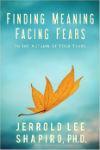
Shapiro, J.L. (2011). Flashback trauma intervention and the Hawaiian prison softball community. In Morgan, R.F., Trauma psychology in context: International vignettes and applications from a lifespan clinical community psychology perspective. Morgan Foundation Publishers.
Shapiro, J.L. (2011). Brief Group Therapy. In Conyne, R. K. (Ed.), Oxford Handbook of Group Counseling. New York: Oxford Publishing.
Shapiro, J.L. (2008). Using Metaphors and Stories to Resolve Impasses and Bridge Resistance. In S.S. Fehr (Ed.), 101 Interventions in Group Therapy. Binghamton, NY: Haworth Press p. 437-442.
Shapiro, J.L. (2008) Using Primary Language to Access Primary Affect. In S.S. Fehr, 101 Interventions in Group Therapy. Binghamton, NY: Haworth Press p. 11-14.
Shapiro, J.L. (2008) Loss of a Legacy: a curmudgeon’s perspective. The Group Psychologist 18(3), 42-46.
Shapiro, J.L. (2006) Turning Negatives Into Positives in Couples Therapy. Review of If Only I Had Known...: Avoiding Common Mistakes in Couples Therapy. Gerald R. Weeks, Mark Odell, and Susanne Methven. New York: Norton, 2005. PsycCRITIQUES,- Contemporary Psychology, 51 (12). #6.
Shapiro, Jerrold L. (2005). Degrees of difficulty, A review of the video Treating Difficult Couples with Douglas K. Snyder Washington, DC: American Psychological Association, 2005. American Psychological Association Psychotherapy Videotape PsycCRITIQUES September 14, 2005 Vol. 50, No. 37, Article 14.
Honos-Webb, L., Sunwolf, & Shapiro, J.L. (2001). Toward the re-enchantment of psychotherapy: Stories as container. The Humanistic Psychologist, 29, 72-97.
Shapiro, J.L. (1993). The Measure of a Man: Becoming the Father You Wish Your Father Had Been. New York: Delacorte.
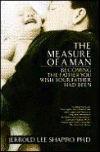
Scheflin, A. W. & Shapiro, J.L. (1989). Trance on Trial. Guilford. New York. Winner of 1991 Manfred Guttmacher Award from American Psychiatric Association.

Shapiro, J.L. (1988). Wenn Maenner Schwanger Sind: Aengste, Sorgen und Beduerfnisse Werdender Vater. Munich, Germany: MVG Verlag.
Shapiro, J.L. (1987). When Men are Pregnant: Fears and Concerns of Expectant Fathers. San Luis Obispo, CA: Impact Publishers.
Ayabe, H. I. & Shapiro, J. L. (1986). Classic Readings in Educational Psychology. Boston, MA: Ginn.
Shapiro, J.L. (1978). Methods of Group Psychotherapy and Encounter: A Tradition of Innovation. Itasca, IL: Peacock Publishing.
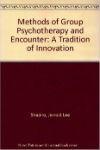
Shapiro, S. L. (2020). Good Morning, I Love You: Mindfulness and Self - Compassion Practices to Rewire Your Brain for Calm, Clarity, and Joy. Sounds True.

Shapiro, S. L. & Jazaieri, H. (2016). Meditation. In V. Zeigler-Hill and T. Shackelfrod (Eds), Encyclopedia of Personality and Individual Differences. Springer.
Aikins K & Shapiro, SL (2016). The Concept of Mindfulness in IPM” to Integrative Preventative Medicine Manuscript submitted to Integrative Preventive Medicine. Edited by Richard Carmona and Mark Liponis. Oxford University Press.
Jazaieri, H., & Shapiro, S. L. (2016). Mindfulness and Well-being. In M. Robinson & M. Eid (Eds.) The Happy Mind: Cognitive Contributions to Well-Being. Springer.
Shapiro, S., Rechtschaffen, D., & de Sousa, S. (2016). Mindfulness training for teachers. In K.A. Schonert-Reichl & R.W. Roeser (Eds.), Handbook of mindfulness in education. New York, NY: Springer.
Shapiro, S. L., De Sousa, S., & Jazaieri, H. (2016). Mindfulness, Mental Health, and Positive Psychology. In I. Ivtzan (Ed.), Mindfulness in Positive Psychology: The Science of Meditation and Wellbeing. London: Routledge. ISBN: 978-1138808515.
Shapiro, S., de Sousa, S., & Hauck, C. (2016). Mindfulness in Positive Clinical Psychology. In A. M. Wood & J. Johnson (Eds.), The Wiley Handbook of Positive Clinical Psychology: An Integrative Approach to Studying and Improving Well-Being (pp. 381-395). Chichester, England:
Shauna Shapiro, Chris White (2014). Mindful Discipline: A Loving Approach to Setting Limits and Raising an Emotionally Intelligent Child
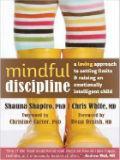
Shapiro, S. L., Brown, K., Astin, J. (2011). Toward the integration of meditation into education: A Review of the research. Teachers College Record, 3, 493-528.
Shapiro, S. L. & Carlson, L. E. (2009). The art and science of mindfulness: Integrating mindfulness into psychology and the helping professions. American Psychology Press, Washington, D.C.
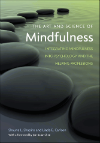
Oman, D., Shapiro, S. L., Thoresen, C. E., Plante, T. G., & Flinders, T. (2008). Meditation lowers stress and supports forgiveness among college students: A randomized controlled trial. Journal of American College Health, 56, 569-578.
Wallace, A., & Shapiro S. L. (2006). Mental balance and well being: Building bridges between Buddhism and Western Psychology. American Psychologist, 61(7), 690-701.
Stoehr, K., Patel, P. (2018). Meaningful mathematical discussions that matter. In S. Crespo, S. Celedon Pattichis and M. Civil (Eds). Access and Equity: Promoting High-Quality Mathematics, Grades 3-5. (pp.99–113). Reston, VA: National Council of Teachers of Mathematics (NCTM).
Stoehr, K. (2017a). Mathematics anxiety: One size does not fit all. Journal of Teacher Education, 68(1), 69–84. DOI: 10.1177/0022487116676316
Stoehr, K. (2017b). Building the wall brick by brick: One woman prospective teacher's experiences with mathematics anxiety. Journal of Mathematics Teacher Education. 20, 119–139. DOI 10.1007/s10857-015-9322-y.
Stoehr, K., Carter, K., Sugimoto, A. (2017). Stories and statistics: A mixed picture of gender equity in mathematics. In V. Ross, E. Chan and D. Keyes (Eds). Crossroads of the Classroom (pp.39–58). London, England: Emerald Publishing. http://dx.doi.org/10.1108/S1479-368720160000028005
Stoehr, K., Liston, J. (2017). Tessellation art. Teaching Children Mathematics, 23(8), p.512.
Sugimoto, A., Turner, E., & Stoehr, K. (2017). A case study of dilemmas encountered when connecting middle school mathematics instruction to relevant real world examples. Middle Grades Research Journal, 11(2).
Sugimoto, A., Carter K., & Stoehr, K. (2017) Teaching “in their best interests:” Pre-service teachers’ narratives regarding English Learners. Teaching and Teacher Education, 67, 179–188.
Turner, E., Sugimoto, A., Stoehr, K., Kurz, E. (2016). Creating inequalities from real-world experiences. Mathematics Teaching in the Middle School, 22(4), 236–240.
Turner, E., Foote, M., Stoehr, K., McDuffie, A., Aquirre, J., Bartell, T., Drake, C. (2016). Learning to leverage students’ multiple mathematical knowledge bases in mathematics instruction. Journal of Urban Mathematics, 9(1), 48–78.
Wang, S. C., Plano Clark, V. L., & Scheel, M. J. (2016). The Enculturation Experience of Three Chinese American Adolescents: A Multiple Case Study. The Counseling Psychologist, 44, 661-694. doi:10.1177/0011000016633875
Representative Peer-Reviewed Journal Articles:
- Ko, D., Bal, A., Mawene, D., *Orie, L., Yoo, J., & Schrader, E. (in press). Dismantling settler-colonial punitive school system: Speculative future-making amid uncertainty and political backlash. Teachers College Record.
- Ko, D., Mawene, D., Lim, S., Lee, Y., & Yoo, J. (in press). When good intentions go awry: Critical policy analysis of equity-focused policies intended to reduce racial disparities in special education. Exceptional Children
- Mawene, D., Bal, A., Bird Bear, A., Ko, D., Orie, L., Mayer-Jochimsen, M. (2024). (Re)claiming rights to space: Indigenous learning lab to transform school discipline system. American Educational Research Journal, 61(4), 842-878. https://doi.org/10.3102/00028312241260322.
- Ko, D. & Bal, A. (2024). The unbearable unaccountability of academia: A critical review of implicit bias training for the racialization of discipline. Educational Studies-A Journal of the American Educational Studies Association, 60(2), 242–256. https://doi.org/10.1080/00131946.2023.2280640.
- Ko, D., Lim, S., & Bal, A. (2024). Leveraging universal design for learning as an equity-oriented design framework to dismantle exclusionary school system. Multiple Voices - Disability, Race, and Language Intersections in Special Education, 23(2), 7-20. https://doi.org/10.56829/2158-396X-23.2.7
- Ko, D., Bal, A., & Artiles, A. J. (2024). Racial Equity by Design: Forming Transformative Agency to Address the Racialization of School Discipline. Urban Education, 59(3), 660-693. https://doi.org/10.1177/00420859221081774
- Lee, Y., Ko, D. & Lim, S. (2024). Marginalization at the intersection of language, culture, and disability: Systemic contradictions perceived by special education teachers in serving culturally and linguistically diverse students with disabilities in South Korea. Peabody Journal of Education, 99(1), 42–64. https://doi.org/10.1080/0161956X.2024.2307800.
- Ko, D., Mawene, D., Krichevsky, B., & Lim, S. (2023). Organizing possible futures: A review on dis/ability justice frameworks to design equity-oriented inclusive teacher education programs. Review of Educational Research, 0(0) https://doi.org/10.3102/00346543231212927.
- Ko, D., Bal, A., Lim, S., & Orie, L. (2023). Fugitive future making: Empowering voices, amplifying sociopolitical imaginations, and designing new futures. Review of Education, Pedagogy, and Cultural Studies, 46(4), 672–699. https://doi.org/10.1080/10714413.2023.2281191.
- Ko, D. & Lee. Y. (2023). Equity-oriented systemic design: Addressing overrepresentation of students of color with and without dis/abilities in school discipline. Equity & Excellence in Education. 1-17. https://doi.org/10.1080/10665684.2023.2248482.
- Ko, D., Bal, A., Bird Bear, A., *Orie, L., & Mawene, D. (2023). Learning lab as a utopian methodology for future making: Decolonizing knowledge production toward racial justice in school discipline. Mind, Culture, and Activity, 30(1), 5–23. https://doi.org/10.1080/10749039.2023.2205391.
- Ko, D., Bal, A., Bird Bear, A., Sannino, A., & Engeström, Y. (2022). Transformative agency for justice: Addressing racial disparity of school discipline with the Indigenous Learning Lab. Race Ethnicity and Education. 25(7). 997-1020 https://doi.org/10.1080/13613324.2021.1969903.
- Ko, D., Bal, A., Bird Bear, A., *Orie, L. & Mawene, D. (2022). Indigenous learning lab as prefigurative political act to dismantle settler-colonial system of exclusion. International Journal of Inclusive Education. 28(11), 2642–2661. https://doi.org/10.1080/13603116.2022.2119488
- Ko, D., Mawene, D., Roberts, K., & Hong, J. J. (2021). A systematic review of boundary-crossing partnerships in designing equity-oriented special education services for culturally and linguistically diverse students with disabilities. Remedial and Special Education, 42(6), 412–425. https://doi.org/10.1177/0741932520983474.
- Ko, D., Bal, A., Cakir, H., & Kim, H. (2021). Expanding transformative agency: Learning lab as a social change intervention for racial equity in school discipline. Teachers College Record. 123(2). 1-42. https://doi.org/10.1177/016146812112300201.
Peer-reviewed Journal Articles
- Williams, A., Liu, C., Zhou, Q., Wu, J., Meng, L., Deng, X. F., & Chen, S. H. (2024) Parental expressions of love in Chinese American immigrant families: Implications for children’s attachment security. Developmental Science, e13549.
- Hawkey, E., Williams, A., Owens, E., & Pfiffner, L. (2024). Emotion dysregulation and executive function in children with ADHD symptoms impact behavioral parent training
outcomes. Journal of Attention Disorders. Advance online publication. https://pubmed.ncbi.nlm.nih.gov/38726593/ - Chung, S., Williams, A., Hinshaw, S., Owens, E., McBurnett, K., Pfiffner, L. (2024). Cultural variations in parenting competence and treatment expectations, adherence, and satisfaction among parents of children with ADHD. Research on Child and Adolescent Psychopathology, 52(3):325-337.
- Williams, A., Haack, L., Hawkey, E., Chung, S., Ly, J. & Pfiffner, L. (2023) Academic competence, organizational skills, and treatment response among bilingual and monolingual children with Attention Deficit Hyperactivity Disorder. Translational Issues in Psychological Science, 9(4):433-443.
- Kim, Y. J.**, Williams, A.*, Liu, C., & Zhou, Q. (2022) Dynamic associations between emotion expression and regulation among preschoolers in low-income Chinese American and Mexican American immigrant families. Emotion, 23(2):460-472.
- Chan, M.**, Williams, A.*, Teng, T. *, & Zhou, Q. (2022) Links between parent-child emotion talk and preschoolers’ socioemotional behaviors in Chinese-heritage families. Early Education and Development, 34:366-386.
- Iijima, Y., Okumura, Y., Yamasaki, S., Ando, S., Okada, K., Koike, S., Endo, K., Morimoto, Y., Williams, A., Murai, T., Tanaka, S., Hiraiwa-Hasegawa, M., Kasai, K., Nishida, A. (2020). Assessing the hierarchy of personal values among adolescents: A comparison of rating scale and paired comparison methods. Journal of Adolescence, 80:53-59.
- Williams, A., Srinivasan, M., Liu, C., Lee, P., & Zhou, Q. (2020). Why do bilinguals code- switch when emotional? Insights from immigrant parent-child interactions. Emotion, 20(5): 830-841.
- Williams, A., Uchikoshi, Y., Bunge, S., & Zhou, Q. (2019). Relations of English and heritage language proficiency to response inhibition and attention shifting in dual language learners in Head Start. Early Education and Development, 30(3): 357-374.
- Yeung, A., Martinson, M. A., Baer, L., Chen, J., Clain, A., Williams, A., Chang, T.E., Trinh, N.H., Alpert, J.E., Fava, M. (2016). The effectiveness of telepsychiatry-based culturally sensitive collaborative treatment for depressed Chinese American immigrants: A randomized controlled trial. Journal of Clinical Psychiatry, 77(8), e996-e1002.
- Kudo, Y., Nakagawa, A., Tamura, N., Kato, N., Williams, A., Aida, N. & Mimura, M. (2016). The reliability and validity of the Japanese version of the Temperament and Personality Questionnaire for patients with non-melancholic depression. Journal of Affective Disorders, 198, 237-241.
- Williams, A., Nakagawa, A., Sado, M., Fujisawa D., Mischoulon, D., Smith, F., Mimura, M., & Sato, Y. (2015). Comparison of initial psychological treatment selections by U.S. and Japanese early-career psychiatrists for patients with major depression: A case vignette study. Academic Psychiatry, 40(2), 235-241.
- Nakagawa, A., Williams, A., Sado, M., Oguchi, Y., Mischoulon, D., Smith, F., Mimura, M., & Sato, Y. (2015). Comparison of treatment selections by Japanese and American psychiatrists for major depressive disorder: A case vignette study. Psychiatry and Clinical Neurosciences, 69(9), 553-562.
- Williams, A., LaRocca, R., Chang, T.E., Trinh, N., Fava, M., Kvedar, J. & Yeung, A. (2014). Web-based depression screening and psychiatric consultation for college students: A feasibility and acceptability study. International Journal of Telemedicine and Applications, 2014, 580786.
- Chang, T., Brill, C., Traeger, L., Bedoya, A., Inamori, A., Hagan, P., Flaherty, K., Hails, K., Fava, M., Yeung, A., & Trinh, N. (2014). Association of race, ethnicity and language with participation in mental health research among adult patients in primary care. Journal of Immigrant and Minority Health, 17(6), 1660-1669.
- Jeon, H.J., Walker, R., Inamori, A., Hong, J.P., Maeng, J.C., Baer, L., Clain, A., Fava, M., & Mischoulon, D. (2014). Differences in depressive symptoms between Korean and American outpatients with major depressive disorder. International Clinical Psychopharmacology, 29(3), 15-156.
- Trinh, N., Hagan, P., Flaherty, K., Traeger, L., Inamori, A., Brill, C., Hails, K., Chang, T.E., Bedoya, A., Fava, M., & Yeung, A. (2014). Evaluating patient acceptability of a culturally focused psychiatric consultation intervention for Latino Americans with depression. Journal of Immigrant and Minority Health, 16(6), 1271-1277.
- Jeon, H.J., Hong J.P., Fava, M., Mischoulon, D., Nyer, M., Inamori, A., Sohn, J.H., Seong, S., & Cho, M.J. (2013). Childhood parental death and lifetime suicide attempt of opposite-gender offspring in nationwide community sample of Korea. Suicide and Life-Threatening Behavior, 43(6), 598-610.
- Oh, B., Choi, S.M., Inamori, A., Rosenthal, D., & Yeung, A. (2013). Effects of qigong on depression: A systemic review. Evidence-Based Complementary and Alternative Medicine, 2013, 1-8.
- Cardoos, A., Inamori, A., Sanacora, G., Fava, M., & Mischoulon, D. (2013). Delayed amnesic syndrome after riluzole use in major depressive disorder: A case report. Psychosomatics, 54, 488-492.
- Farabaugh, A., Alpert, J., Wisniewski, S.R., Otto, M.W., Fava, M., Baer, L., Perlis, R., Friedman, E., Nyer, M., Bitran, S., Balasubramani, G.K., Inamori, A., Trivedi, M., & Thase, M.E. (2012). Cognitive therapy for anxious depression in STAR*D: What have we learned? Journal of Affective Disorders, 142 (1-3), 213-221.
- Fausey, C., Long, B., Inamori, A., & Boroditsky, L. (2010). Constructing agency: The role of language. Frontiers in Psychology, 1 (162), 1-11.
Grants:
National Science Foundation Track 2 Noyce Grant #1950329 (2020-2026). Math Equity and Access through Mindset and Sense Making (MEAMS, $3M). Principal Investigator: Sabrina Zirkel. Co-PIs: Kathy Sun, Kathleen J. Stoehr, Marco A, Bravo, and Linda Burks.
Publications
- Sun, K., Waller, P., Id-Deen, I., & Baldinger, E.E. (in press). Does discussing controversial issues support student learning?: Secondary preservice mathematics teachers’ perspectives. Mathematics Teacher Educator.
- Sun, K. & Ruef, J. (2023). Examining Teacher Praise to Conceptualize the Relationship Between Teacher Praise and Competence in Mathematics Classrooms. Journal of Mathematical Behavior.
- Wingard, A., Kijima, R., Yoshihara Yang, M., & Sun, K. (2022). A design thinking approach to developing girl’s creative self-efficacy in STEM. Thinking Skills and Creativity.
- Sun, K., Ruef, J., Stoehr, K., & Ahearn, M. (2022). Teaching preservice mathematics teachers in the time of Covid: What’s worth keeping? Journal of Humanistic Mathematics. doi: 10.5642/jhummath.202201.14
- Mangram, C. & Sun, K. (2021). Preservice secondary mathematics teachers’ professional judgment around digital technology use. Mathematics Teacher Educator. doi: https://doi.org/10.5951/MTE.2020.0046
- Kijima, R. & Sun, K. (2020). “Females don't need to be reluctant:” Employing design thinking to harness creative confidence and interest in STEAM. International Journal of Art and Design. doi: 10.1111/jade.12307
